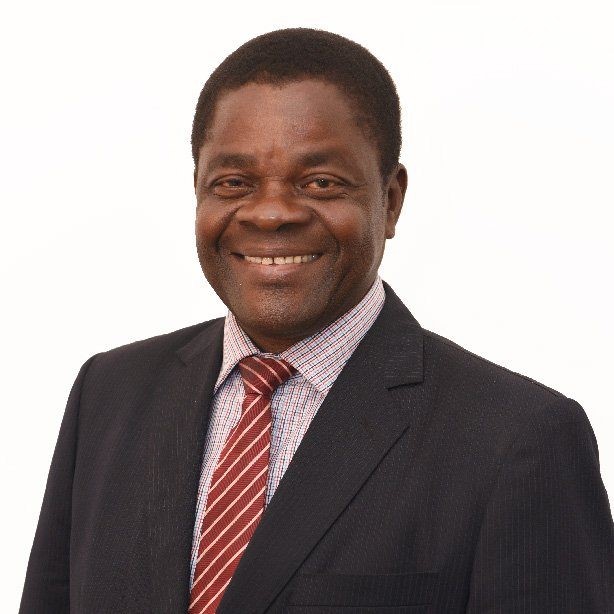
The management of MountCrest University College (MountCrest) has noted with gratitude the high commendation received by the institution in a recent report by the General Legal Council (GLC) and National Accreditation Board (NAB) on the assessment of tertiary institutions which offer legal education in Ghana.
The joint report was signed and issued by the Chairperson of the General Legal Council, Justice Anin Yeboah – who is also the Chief Justice.
The report took note of “the significant improvements” achieved by MountCrest University College since the previous monitoring exercise in 2016, and praised the institution for the Faculty’s staff-student ratio of 1:12, increased staff strength, adoption of strategies to upgrade its staff to attain terminal degrees, and a well-stocked library with relevant law textbooks and law reports.
The General Legal Council approved staff-student ratio is 1:27 and the operational norm is 1:30, which means that the ratio of 1:12 maintained by MountCrest is highly desirable – because in many schools across the country, class sizes are growing while the number of teachers remains the same. This makes it easier for some students to fall through the cracks and not get the individualised attention they need to succeed academically.
Some Faculties, according to the report, had staff-student ratios between 1:23 and 1:60. It therefore charged institutions with ratios higher than 1:27 to reduce admission numbers by half of what was admitted in the last admissions.
Reacting to the report, Mr. Kwaku Ansa-Asare – the Founder of MountCrest, who is also a former Director of Legal Education and the Ghana School of Law – said he and his team as well as the students at MountCrest were humbled by the positive comments made in the report about MountCrest.
He stressed management’s commitment to the vision of MountCrest, which is “to become a law faculty
world-class teaching and research university, educating for life and addressing the challenges facing contemporary society”.
“Our mission is to train and prepare a new generation of graduates in body, mind and spirit, for the transformation of society,” he added.
The Founder emphasised that the institution will seek to provide cutting-edge research, relevant teaching and learning and proactive extension activities, all aimed at making MountCrest the first choice for both staff and students.
“We will continue to maintain small class sizes, a modern well-stocked library, access to e-learning resources, a modern virtual learning environment, moot court facilities, and international collaborations with world-class institutions in order to offer our staff and students the best teaching and learning,” Mr. Ansa-Asare stressed.
According to the Deputy Rector of MountCrest in charge of Institutional Advancement, Corporate and International Affairs, Mrs. Irene Ansa-Asare Horsham, following the recent persistent low pass rates in the entrance examination of the Ghana School of Law (GSL), MountCrest University College (MCU) has launched a special programme on techniques and skills for writing law examinations to support students prepare adequately for the 2020 examination.
Only 128 out of the 1,820 candidates who wrote the examination last year in their bid to gain admission into the Ghana School of Law passed.
The pass rate for the 2019 examination which was in two parts – written questions and objectives – translated into a percentage of 7.03. The poor results came after a similar outcome in 2018.
According to the Deputy Rector, many students may be academically inactive during the period between their final LLB examination and the time they write the entrance examination, hence the need to help refresh their academic writing skills.
“No matter how well one has prepared in terms of foundational knowledge of the law, one may find that due to infrequent practice one’s writing skills – particularly in relation to sitting examinations under pressure – may require some fine-tuning,” she said.
It is for this reason that MountCrest has designed a special four-week course for students, aimed at equipping them with the necessary skills for preparing and writing the Ghana School of Law entrance examination.
The four-week short course is focused on academic writing skills for law examinations, and will run from Tuesday, June 30 to Saturday, July 25, 2020. It will be held three times per week – Tuesday, Thursday and Saturday – from 6.30pm to 8.30pm.
The programme will be held online via mountcrestonline.com, Virtual Learning Platform (VLP), with one-month access to MountCrest learning resources including a law cases database.
It will include writing workshops with assessed feedback on practice questions; academic writing for law exams – techniques and skills; how to answer problem questions in law examinations (without deviating); how to answer essay questions in law exams, as well as practice questions and answers in six core areas. All these will be assessed with individual feedback.
The resource persons for the programme include Mrs. Irene Ansa-Asare Horsham; Captain Jamal Tonzua, an alumnus of MountCrest and Georgetown University and a 2019 UN International Law Fellow; and Randy Brafo, who is also a successful lawyer and old student of MountCrest.
The feedback assessors for the programme are Mr. Kwaku Ansa-Asare, the founder and former Rector of MountCrest University College, and Professor George Novisi Vukor-Quarshie, Head of the Department of Public Law at MountCrest.
Currently, MountCrest University College is collaborating with the School of Oriental and African Studies (SOAS) University of London; the European Public Law Organisation, University of Toronto, Canada; the University of Namibia; and Pennsylvania State University, USA, to get the best for its staff and students.
The school also recently established teaching and research centres named after international leading scholars: namely, the Prof. W.C. Ekow Daniels Centre for African Studies; The Prof. Sir









